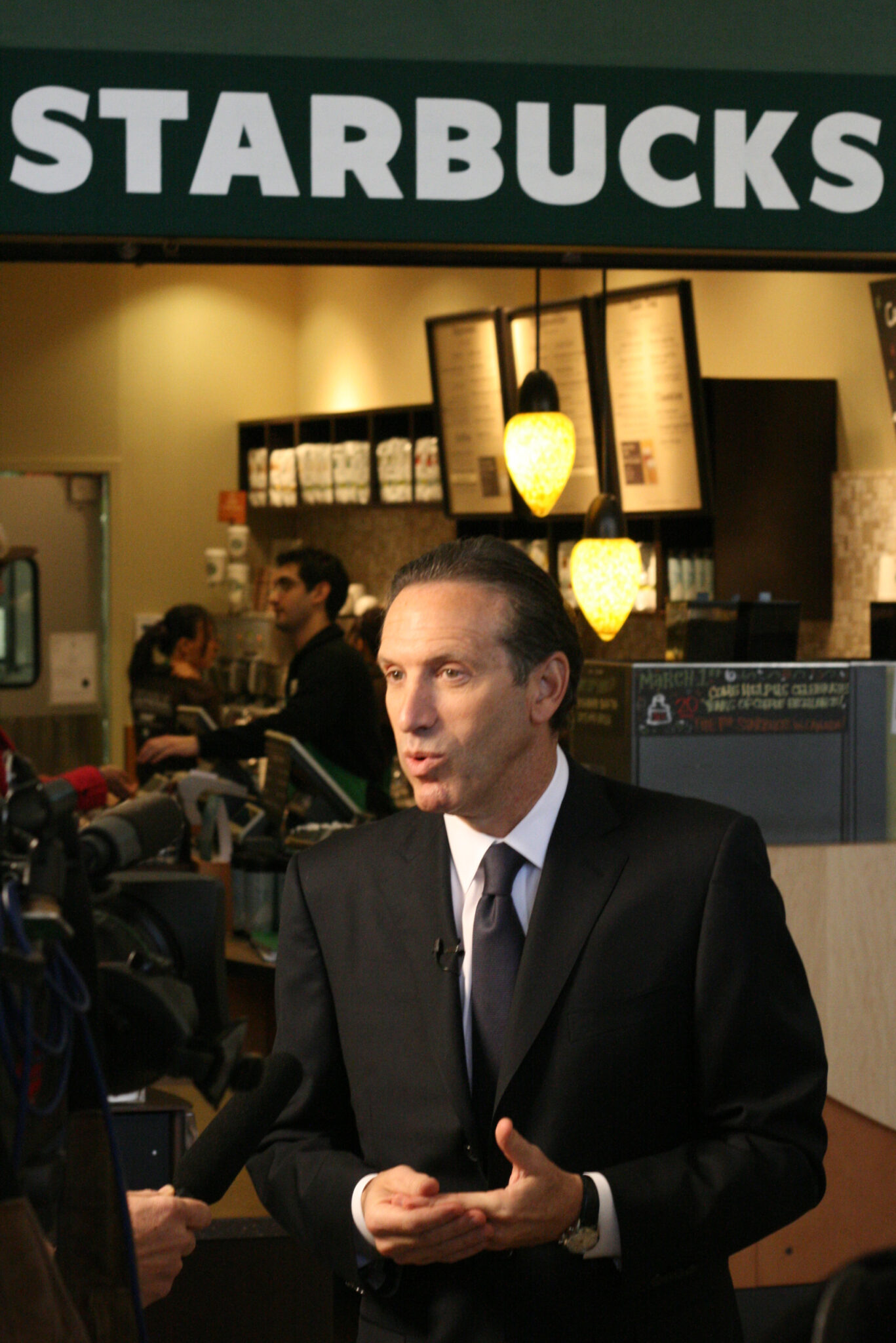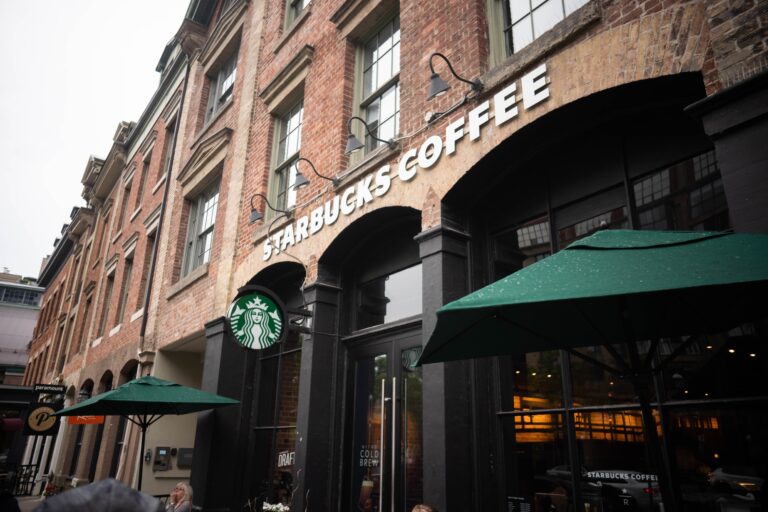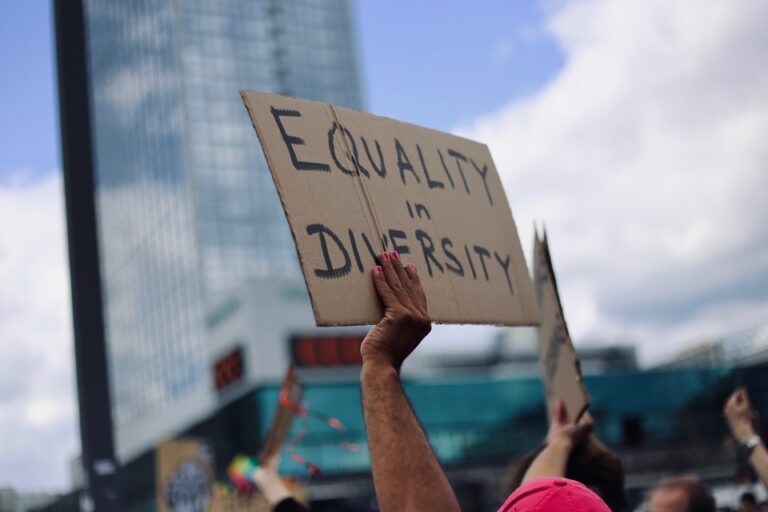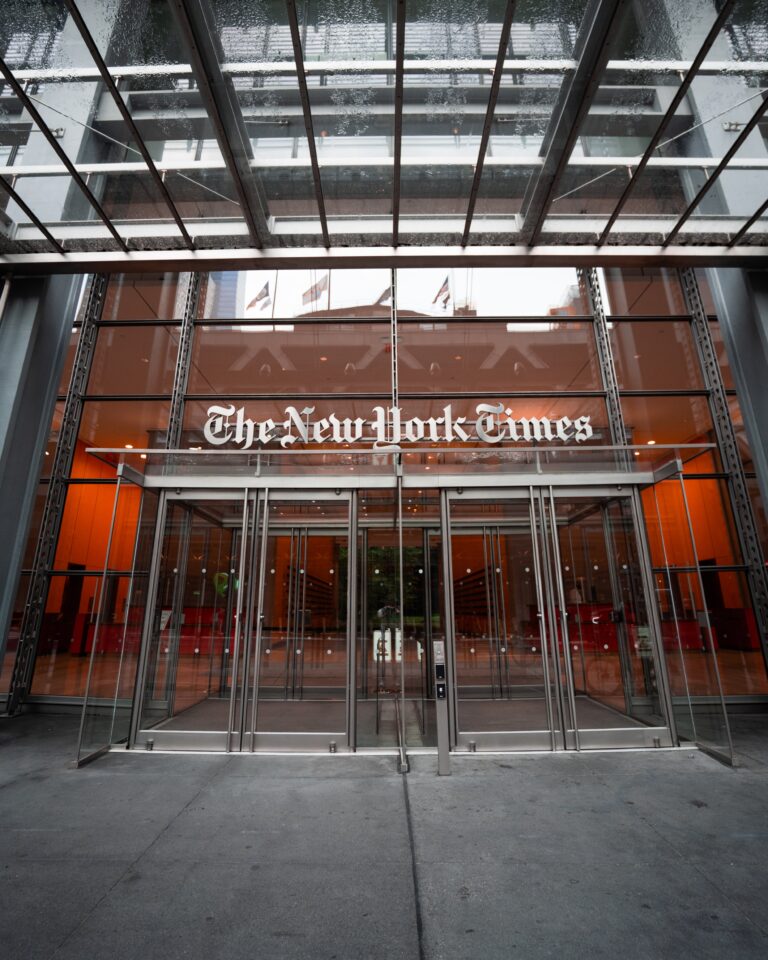Anita Alem is a student at Harvard Law School.
Starbucks Founder and Former Chief Executive Officer Howard Schultz testified before the Senate Health, Education, Labor, and Pension Committee on Wednesday morning. For two hours, Senators questioned Schultz regarding Starbucks’ anti-union practices, including retaliation against pro-union workers, withholding of benefits from unionized workers, and failure to reach a contract with any of the more than 300 unionized locations.
Schultz agreed to testify before the Senate following weeks of pressure from the Committee and its plans to vote to subpoena him. Schultz was the CEO of Starbucks from 1986 to 2000, 2008 to 2017, and returned as the interim CEO last year. Laxman Narasimhan, Schultz’s successor and the current Starbucks CEO, assumed the role earlier than anticipated following Schultz’s agreement to testify.
Throughout his testimony, Schultz repeatedly asserted that Starbucks “unequivocally” has not broken the law, despite the NLRB repeatedly ordering Starbucks to cease and desist from unlawful activities. Earlier this month, an NLRB Administrative Law Judge found Starbucks committed “egregious and widespread” violations of federal law and ordered Schultz himself to engage in a notice-reading. However, when Senator Bernie Sanders asked Schultz at the hearing if he was “aware” of this order and “prepared to read that notice,” Schultz stated, “No I am not. Because Starbucks Coffee Company did not break the law.” When Senator Chris Murphy pointed out Schultz’s insistence that these consist merely allegations is “akin to someone who has been ticketed for speeding 100 times saying ‘I have never violated the law because every single time . . . the cop got it wrong,’” Schultz continued to assert, “I do not believe that Starbucks has broken the law.”
The hearing became heated at times with an argument between Senator Markwayne Mullin and Senator Sanders over Sanders’ own net worth. Almost all pushback against Schultz arose from Democratic Senators, while Republican Senators largely expressed support for Schultz. Senator Bill Cassidy, a ranking member of the Committee, asserted that the NLRB was “weaponizing the agency against employers.” However, Republican Senator Mike Braun, responding to Schultz’s assertion that the minimum wage at Starbucks is $17 an hour, noted “that’s not a living wage in this day and age” and indicated that Starbucks should instead be paying at least $20 per hour, though he did not agree with the unionization efforts.
Schultz’s testimony was followed by a panel featuring a current Starbucks worker and organizer from Tennessee, Maggie Carter, a former Starbucks worker and organizer in Georgia who was fired despite his stellar employment record, Jaysin Saxtin, as well as Professor and Executive Director of the Center for Labor and a Just Economy at Harvard Law School Sharon Block. Both Carter and Saxtin testified regarding Starbucks’ anti-union practices, including how Starbucks has walked out on bargaining sessions and significantly reduced the hours of pro-union workers in retaliation for organizing. Responding to Schultz’s statements that he supports “partners,” the term for Starbucks workers, but not unionization efforts, Carter stated, “You cannot be pro-partner and anti-union.”
Upon questioning from Senator Tina Smith, Schultz had stated that Starbucks could not extend the same benefits that those at nonunionized stores receive to unionized stores. Professor Block, responding to Schultz, noted that Starbucks was not legally barred from doing so, and that the NLRB would be deciding if Starbucks’ refusal to do so was motivated by anti-union sentiment.










Daily News & Commentary
Start your day with our roundup of the latest labor developments. See all
January 22
Hyundai’s labor union warns against the introduction of humanoid robots; Oregon and California trades unions take different paths to advocate for union jobs.
January 20
In today’s news and commentary, SEIU advocates for a wealth tax, the DOL gets a budget increase, and the NLRB struggles with its workforce. The SEIU United Healthcare Workers West is advancing a California ballot initiative to impose a one-time 5% tax on personal wealth above $1 billion, aiming to raise funds for the state’s […]
January 19
Department of Education pauses wage garnishment; Valero Energy announces layoffs; Labor Department wins back wages for healthcare workers.
January 18
Met Museum workers unionize; a new report reveals a $0.76 average tip for gig workers in NYC; and U.S. workers receive the smallest share of capital since 1947.
January 16
The NLRB publishes its first decision since regaining a quorum; Minneapolis labor unions call for a general strike in response to the ICE killing of Renee Good; federal workers rally in DC to show support for the Protecting America’s Workforce Act.
January 15
New investigation into the Secretary of Labor; New Jersey bill to protect child content creators; NIOSH reinstates hundreds of employees.